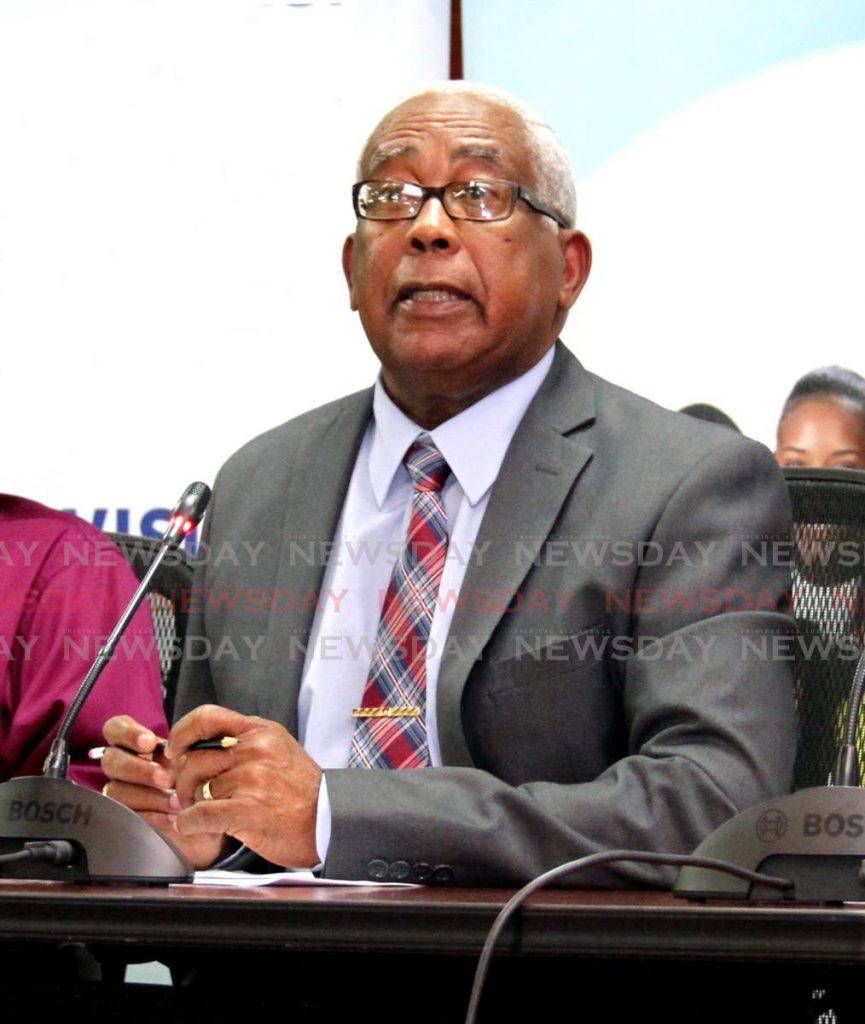[UPDATED] Garcia: SEA here to stay

Education Minister Anthony Garcia has said the Secondary Entrance Assessment (SEA) examination will remain the stepping stone for students to transition from primary to secondary school.
This is in spite of arguments through the years that the SEA places too much stress on children ten and 11 years old.
Originally called the Common Entrance exam, part of the colonial education system, it has been revamped and restructured several times, but remains a mainstay of TT's education system.
Barbados Prime Minister Mia Mottley recently announced her country's decision to abolish the Common Entrance exam and embark on substantial educational reform in this new decade. She said "middle schools" will be introduced and there will be more diverse pool of academic opportunities for the country’s children.
She said Common Entrance sought sought to relegate people to stations in life or no opportunities, depending on where they go after the exam.
Mottley said, "Ten or 11 years old is too young to ask a child to determine what their life should look like."
Garcia, however, during a news conference at his ministry on Tuesday, when asked if this country would follow in that direction, said TT was guided by fixed rules.
"That is Barbados. In TT we are guided by certain things. As you know, we run a dual system of education, in which the church plays an important part. We have government schools and government-assisted schools. We have to recognise the contribution the churches have made towards education and we just can't discard with that.
"In addition to this, the Constitution of TT gives to parents the right of choice, and therefore parents have the right to choose."
Garcia said if the ministry were to abolish the SEA exams at this stage, it would have to find an alternative method of transitioning children to secondary schools.
"We have been looking at this for some time now and we are yet to come up with a formula that would allow the transition of students from primary school to secondary school without having any problem with respect to the church, and also with respect to the rights of the parents to choose."
He said while people have argued that the ministry should engage in zoning, this would remove parents' right to choose.
"All of these implications, legal implications, implications with respect to the rights of the church – because they is a 20 per cent facility where they select the students to ensure that the religious character of the school is maintained...
"It is not simply that we will follow Barbados. We have our own things to deal with, and therefore we are doing everything to ensure that there is equity in the system. We try to build this education system on the four pillars: equity, access, quality and good governance. And in whatever we do we try to maintain this foundation of our education system."
Head of the TT Unified Teachers' Association (TTUTA) Antonia De Freitas said the union has for many years been discussing with the ministry its feeling that students at that level should not have to participate in high-stakes assessments to move from one stage of education to another.
De Freitas said the SEA exam increased students' stress level with the extra workload and long hours.
"We have been and still are concerned about that stress on students. It is something that has to be discussed with all stakeholders to find alternatives."
TTUTA had always been willing to discuss such alternatives with the ministry,she said.
This story has been adjusted to include additional details. See original post below.
Education Minister Anthony Garcia said the Secondary Entrance Assessment (SEA) examination will remain the stepping stone for students to transition from primary to secondary school.
This is in spite of arguments through the years that the SEA places too much stress on children ten and 11 years old.
Originally called the Common Entrance exam, part of the colonial education system, it has been revamped and restructured several times, but remains a mainstay of TT's education system.
Barbados Prime Minister Mia Mottley recently announced her country's decision to abolish the Common Entrance exam and embark on substantial educational reform in this new decade. She said "middle schools" will be introduced and there will be more diverse pool of academic opportunities for the country’s children.
She said Common Entrance sought sought to relegate people to stations in life or no opportunities, depending on where they go after the exam.
Mottley said, "Ten or 11 years old is too young to ask a child to determine what their life should look like."

Comments
"[UPDATED] Garcia: SEA here to stay"